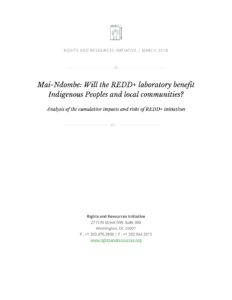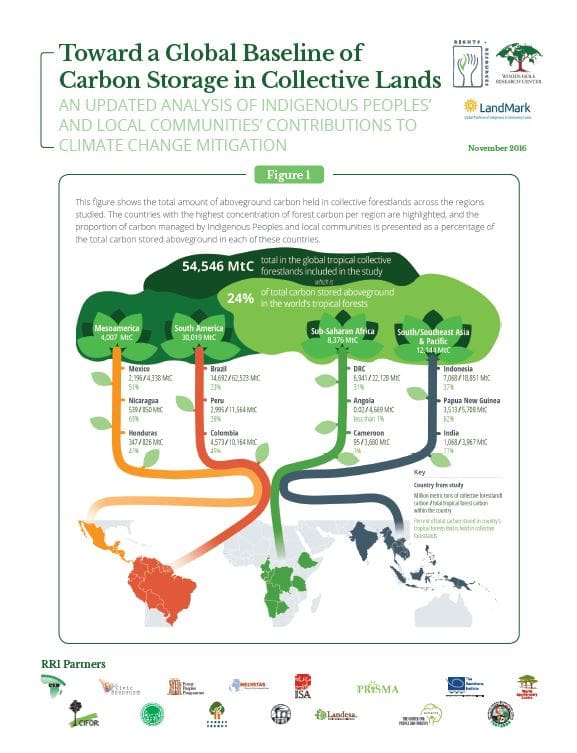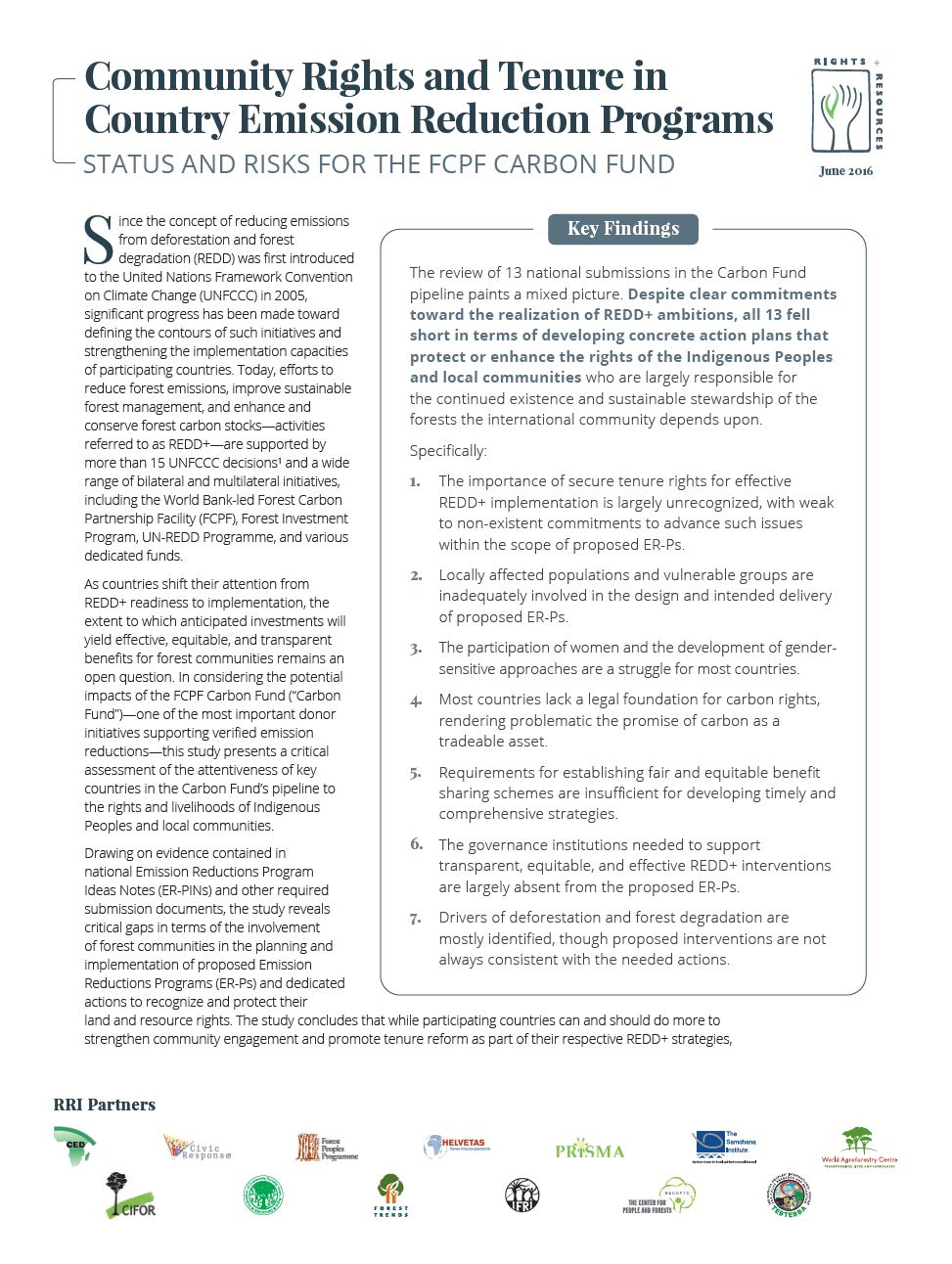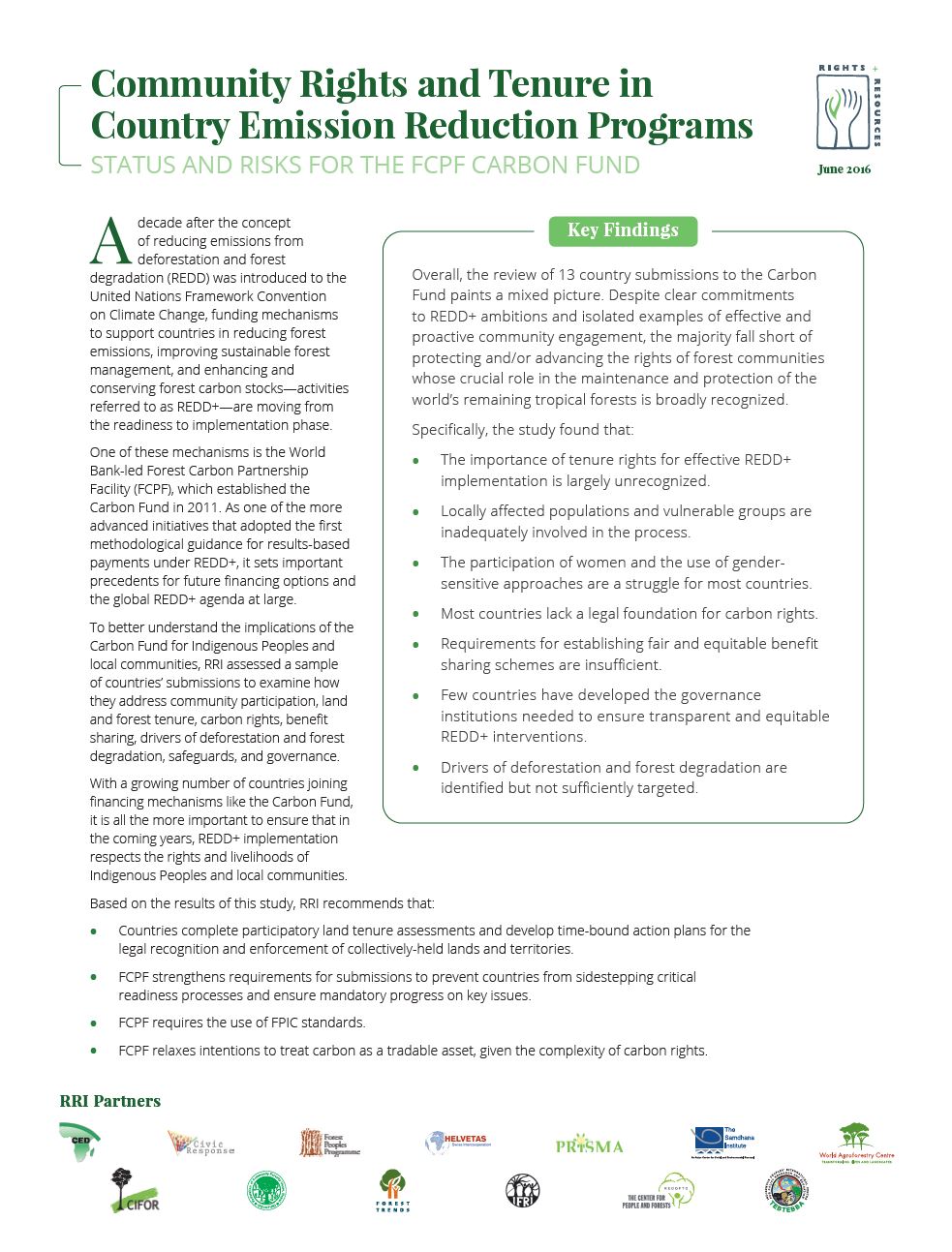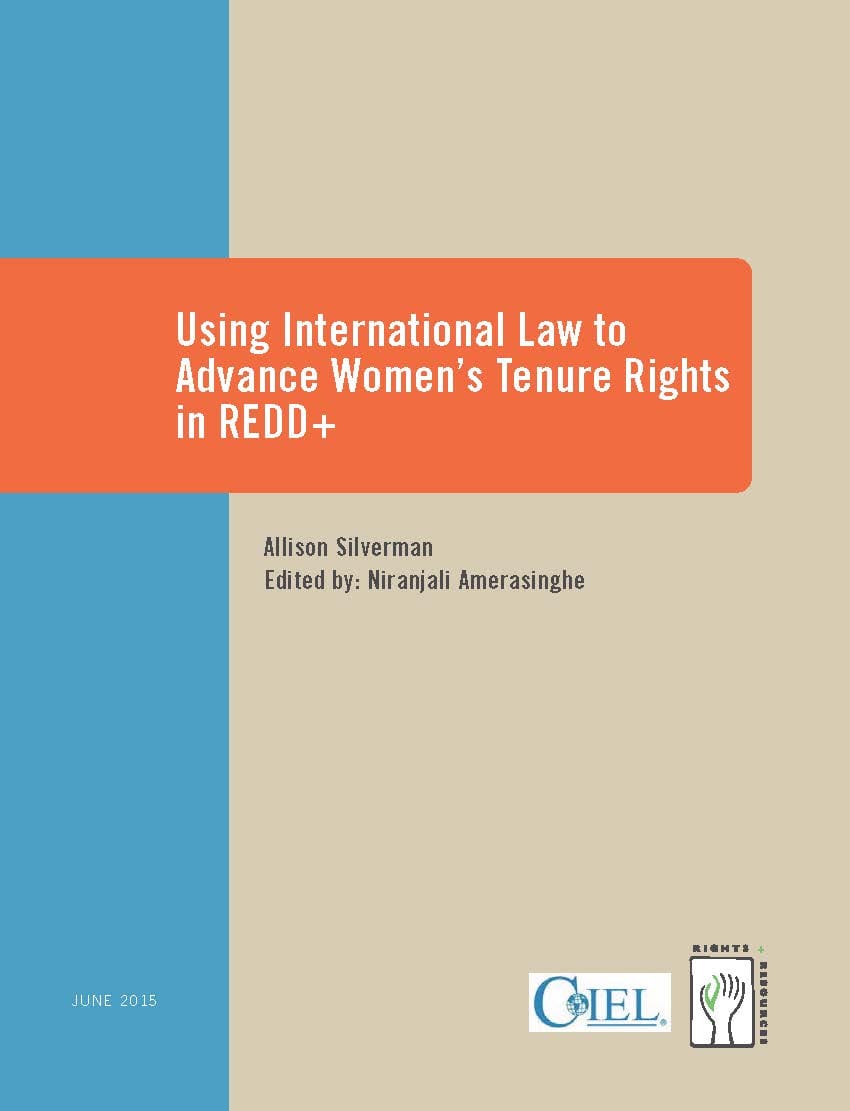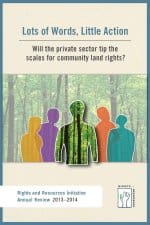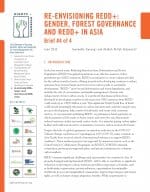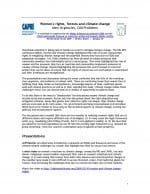This report examines the current state of play as countries prepare for the operationalization of Article 6.4 of the Paris Agreement, offering a systematic analysis of the recognition of the carbon rights held by Indigenous Peoples, local communities, and Afro-descendant Peoples in 33 countries in Africa, Asia, and Latin America as of August 2024.
This study assesses the cumulative risks and impacts of all REDD+ initiatives in the DRC province of Mai-Ndombe on the rights and subsistence of local communities and Indigenous Peoples. Using existing tools while taking into account gray areas in the REDD+ process, the study maps all existing and planned REDD+ initiatives in the province.
Compelling quantitative evidence of the unparalleled role that forest peoples have to play in climate change mitigation.
New research from RRI reveals that 13 submissions to the World Bank’s Carbon Fund–one of the most advanced REDD+ initiatives–either fail to recognize the importance of land rights or adequately include local peoples in key decision-making processes.
A decade after REDD appeared on the international scene, mechanisms to reduce emissions by protecting forests–activities referred to as REDD+–are finally moving from the idea…
This paper makes a case for advancing women’s tenure rights and how international law can be used to promote those rights in the context of REDD+.
While there were many encouraging pronouncements in 2013—from courts, governments, and some of the world’s largest corporations —unfortunately, progress for community land rights on the ground remains very limited.
This chapter is based on the authors’ recent study for USAID on gender and REDD+ in the Asia region. The study aims at identifying and…
Worldwide attention is being paid to forests as a tool to mitigate climate change. The RRI-RFN conference Rights, Forests and Climate Change highlighted the role…


